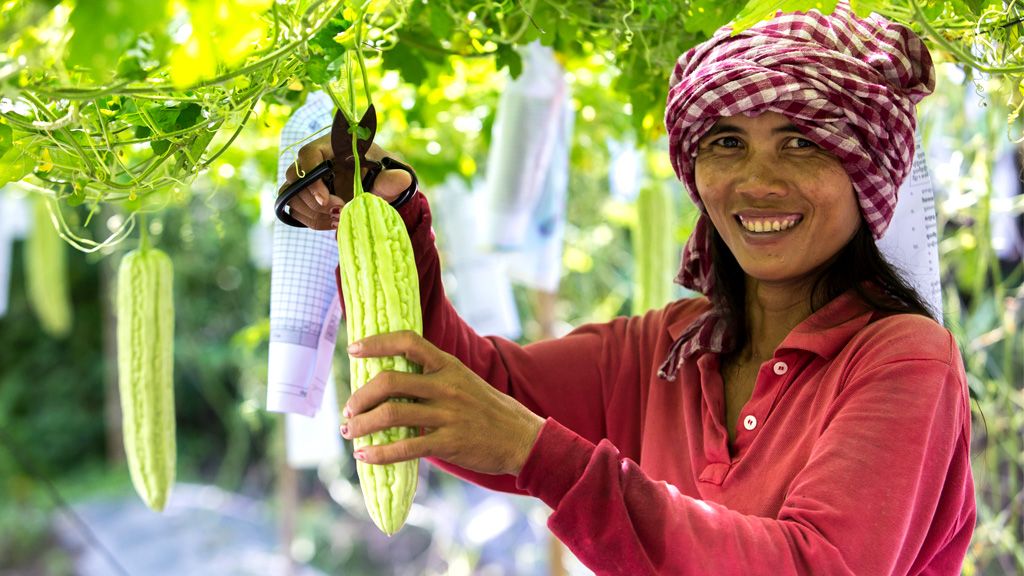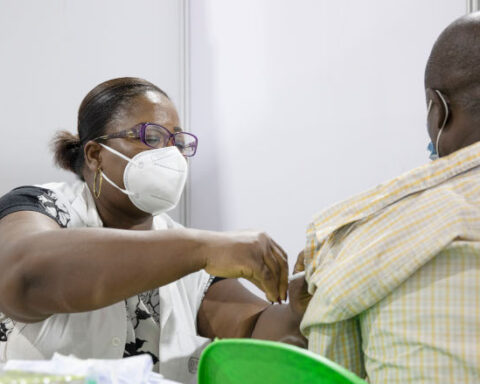Widespread quarantine and lockdowns have led to the closure of businesses and factories, disrupting manufacturing and supply chains and affecting agribusinesses and food systems as a whole.
The food and agribusiness sector are considered essential services by most governments. However, the impact of COVID-19 on the region’s food security still needs sustainable solutions from companies working in agribusiness. ADB is helping its developing members to build resilient agribusiness sector through its work with the private sector.
Improving liquidity of agribusinesses
The disruption caused by the pandemic has caused financial stresses and many agribusinesses have subsequently faced liquidity problems. Companies struggled with late payments from customers who have also been affected by the pandemic. Others struggled with an increase in inventory caused by supply chain disruptions.
In India, poultry processor Suguna Foods Private Limited (Suguna) was hit hard by false rumors that chickens were carriers of COVID-19, resulting in a 40% reduction in sales compared to pre-pandemic levels. Due to demand uncertainty, Suguna significantly scaled back its poultry operations. Poultry livestock is central to India’s food value chain.
Poultry livestock is central to India’s food value chain.
To strengthen India’s poultry production, ADB is helping Suguna to sustain its operations. While the company recoups, ADB is helping Suguna to manage inventory buffers and to make timely payments to contract farmers and suppliers, thereby minimizing disruption to farmer incomes and ensuring continued poultry supply.
Enabling a steady flow of farm produce to traders
The pandemic has been especially difficult for farmers. They faced declining sales volume and prices as local markets closed and demand from traders fell. Prolonged lockdowns worsened their financial burden as loan repayments persisted even as harvests and incomes declined. Smallholder farmers often do not have alternative buyers or access to different markets, especially during times of crisis. Smallholder farmers need stable take-off for their agricultural products.
Smallholder farmers need stable take-off for their agricultural products.
ADB is helping to mitigate these disruptions by steadying the supply of goods from farm to market. It is supporting Olam International Limited, a global agribusiness company engaged in sourcing, processing, packaging, and merchandising of agricultural commodities. Olam helps smallholder farmers by providing stable off-take for their agricultural products. ADB’s investment will provide Olam with the working capital to increase the purchase of agricultural crops from at least 100,000 smallholder farmers.
To sell or spoil
Lockdowns and business closures disrupt milk collection processes, which in turn affects the sale and distribution of highly perishable raw milk. Farmers are forced to sell their milk intermittently at low prices or let the raw milk spoil, which would reduce their income significantly.
ADB’s support to PRAN Dairy Limited has helped the company surmount these obstacles by continuously procuring milk from a network of 12,000 farmers and adding 1,200 farmers to its procurement network. This will ensure stable sales of products from dairy farmers to traders, while simultaneously helping farmers to build enough buffer inventory to cope with supply chain disruptions.
Secure jobs and safe working environments
Many company owners believe they have a moral obligation to support and protect their employees, especially at this time of crisis. Further, agribusiness companies must prioritize the health and safety of their workers as they are considered frontline essential workers given their key role in getting food to consumers.
In Indonesia, ADB’s COVID-19-response investment to PT Cisarua Mountain Dairy will help the company cover costs to procure personal protective equipment (including protective clothing, helmets, gloves, face shields, goggles, and face masks) for its 2,100 factory workers, 3,300 dairy farmers, and over 1,500 sales agents in the field. Moreover, ADB will help Cisarua adjust its distribution channels by adding 250 direct sales agents, all of whom are women from lower socioeconomic backgrounds. Cisarua added 250 women sales agents as product distributors.
Cisarua added 250 women sales agents as product distributors.
Keeping food prices stable for staples
COVID-19 spurred rises in food and wheat prices in Mongolia due to higher transport costs stemming from lockdowns as well as export restrictions. Wheat is the main agricultural crop in Mongolia and accounts for about one-third of the population’s total daily caloric intake. Price hikes will make it particularly hard for extremely poor urban residents to buy meat and milk products.  Wheat is the main agricultural crop in Mongolia.
Wheat is the main agricultural crop in Mongolia.
Meeting this staple demand is crucial to maintain food security during this crisis period. ADB supports Ulaanbaatar Flour LLC (UB Flour), Mongolia’s leading wheat miller, which supplies over a third of the country’s wheat flour. UB Flour increased its procurement of domestic wheat and built enough buffer inventory to cope with supply chain disruptions—just in time for the annual wheat harvest procurement season in the last quarter of 2020.
The pandemic has posed many challenges to economies in Asia and the Pacific, few more pressing than food security. Supporting agribusinesses now helps feed the poor, and make food systems more resilient against future crises.






